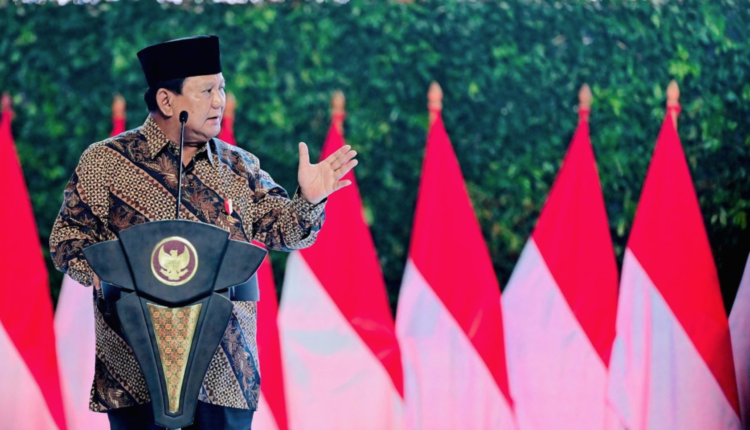President Prabowo Urges Young Generation to Stay Away from Drugs
By: Andika Pratama )*
Drug abuse among Indonesian youth has become a serious concern for the government and society, given its detrimental impact on the future of the nation’s next generation. The Head of the National Narcotics Agency (BNN), Commissioner General Marthinus Hukom, stated that 312,000 Indonesian teenagers are caught in drug abuse, a shocking figure that indicates the gravity of this situation. Teenagers and college students are the main targets of drug dealers who try to exploit their search for identity through unhealthy persuasion and social circles. They fall into drug use due to curiosity and peer pressure.
Therefore, building strong communication and continuous education within the family is an effective first step in preventing drug abuse. The role of the family in preventing young people from getting trapped in drugs is crucial. Early education about the dangers of drugs can be done in the family environment through open communication and good emotional support.
Shabaruddin, a member of the East Kutai Regional House of Representatives, emphasizes the importance of parents’ role in ensuring their children have a healthy and safe playing environment. Parents also need to pay attention to early signs of suspicious behavior and provide non-judgmental supervision, so that children feel comfortable discussing if they experience pressure from their environment or curiosity about drugs.
Moreover, families must play an active role in filtering children’s social environment, especially during vulnerable periods such as adolescence, where curiosity and peer influence have a significant role in decision-making. Schools and universities also have a major role as institutions that can provide education about the dangers of drugs to students.
The educational environment can be a platform to provide a deep understanding of the negative impacts of drugs on their physical, mental, and future well-being. Socialization conducted by the National Police in universities, such as at Pancasila University in Jakarta, is expected to create a deterrent effect and awareness among students about the risks of drug abuse.
The Rector of Pancasila University, Marsudi Wahyu Kisworo, supports the National Police’s socialization program about the risks of drug abuse, which aims to build a drug-free young generation. To produce excellent national leaders, the young generation must be kept away from the influence of drugs that could potentially ruin their future.
Law enforcement agencies also play an important role in handling drug abuse among young people. Proactive steps through socialization and a humanist approach taken by the National Police and BNN can instill stronger awareness among young people. Additionally, patrol activities in areas suspected of drug trafficking need to be increased to reduce access to these illegal substances.
For young people who are trapped, a rehabilitation approach focusing on recovery and self-development should be provided as a solution so that they can return to normal life and contribute positively to society. This humanist legal approach gives young people the opportunity to improve themselves and become better individuals. This step is essential so that young people do not feel alienated or ostracized when they make mistakes, but instead receive support from the state and society to rise again.
The problem of drug abuse among young people is not a challenge that can be solved by one party alone, but requires synergy from all elements of society. The government, law enforcement agencies, educational institutions, families, and the general public must work together in creating an environment that supports the positive development of young people. This collaboration includes education, mentoring, and supervision carried out consistently and continuously.
The Desa Bersinar (Shining Village) program from BNN, for example, is one of the synergistic efforts that can be applied more broadly, not only in villages but also in big cities, including campuses and other urban environments that are vulnerable to drug abuse. With programs like this, young people can gain a correct understanding of the dangers of drugs from an early age and have a community that supports them to stay on the right track.
In this digital era, social media has become an effective tool to reach young people. The government and BNN can utilize social media to run creative and educational campaigns about the dangers of drugs, for example through short videos, infographics, and testimonials from former users who have successfully recovered. The use of social media for anti-drug campaigns also allows positive messages to spread widely and become part of the daily lives of the younger generation.
Through the synergy of all parties, from families to the government, as well as the use of social media as a creative educational tool, it is hoped that Indonesia’s young generation will be able to stay away from the snares of drugs and grow as a productive, healthy generation ready to build the nation’s future. Young people are important assets for the nation’s future, and strong preventive measures will be the foundation for the success of Indonesia’s better development.
)* The author is a contributor to Jabartrigger.com
